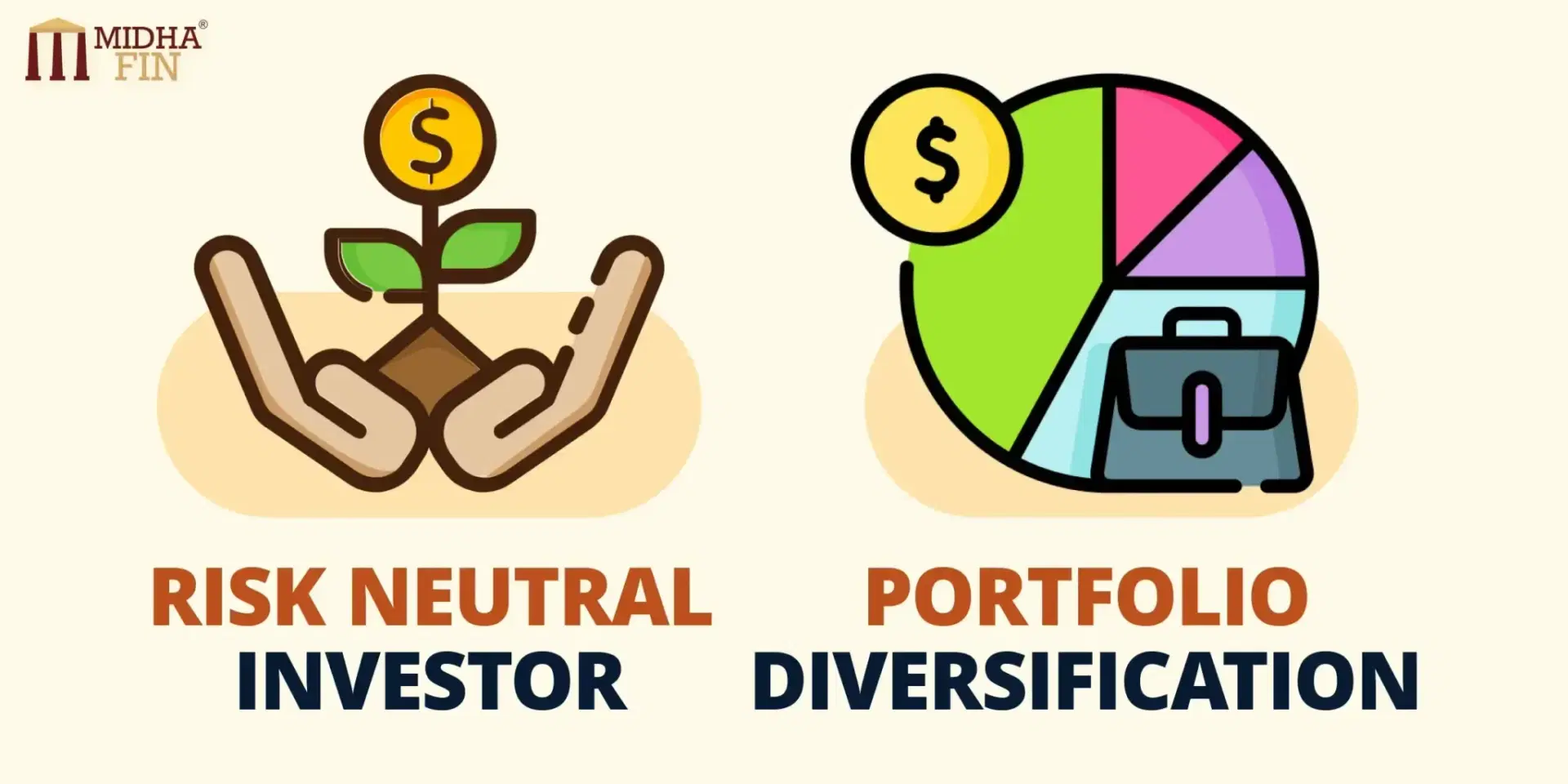Portfolio Management
Risk Neutral investor and portfolio diversification

Risk-neutral Investor- Ideology & Interpretation
Risk-neutral investors are solely concerned with the expected returns of an investment, regardless of its underlying risks. When confronted with a gamble versus a sure thing, risk-neutral investors are indifferent as long as the expected value of both options balances out.
Risk-neutral investors do not have any concern with the Risk-Reward ratio as for them “Reward” is the only factor to be considered when making investment decisions, despite any levels of risk involved. The risk-neutral investor doesn’t attach any significance to the “Risk-Reward” relationship.
Risk neutral vs Risk averse- Example illustrating ideology differences
To illustrate risk neutrality, consider a hypothetical situation with two investment options: one which involves a guaranteed payoff of $100, while the other involves a gamble, with a 50% chance of a $200 payoff and a 50% chance you receive nothing.
In our hypothetical scenario, the risk-neutral investor would be indifferent between the two options, as the expected value (EV) in both cases equals $100.
1. EV = 100% probability X $100 = $100
2. EV = (50% probability X $200) + (50% probability X $0) = $100 + 0 = $100
However, a risk-averse investor would introduce the added variable of risk into their decision, thereby unbalancing the alternatives above.
Given that the 2nd option involves uncertainty, and therefore risk, the risk-averse investor would demand an added payoff to justify taking on any added risk.
Reframing the problem above, the risk-averse investor would choose option 1, given a) both options return the same expected value, and b) option 1 involves the greatest certainty.
On the other hand, the risk-neutral investor would remain indifferent, as risk does not factor into their decision-making process.
Portfolio diversification- Risk-neutral investor perspective
In the reasoning provided above, portfolio diversification will not matter for the risk-neutral investor, and the “Risk” factor is not involved in the decision-making framework.
The essence of diversification is to reduce “Unsystematic” risk or “Idiosyncratic” risk, which will matter a lot to risk-averse investors and planned risk-seekers who use risk as leverage to get the highest reward and they will trim out any unnecessary risk that does not transform into “Reward” which is quite in contrast to the risk-neutral investor.
Portfolio diversification plays no significant role in investment strategic considerations for a risk-neutral investor. Also, a key point to be noted is that on the plot of Efficient Frontier the efficient portfolios will not make any sense for the risk-neutral investor as “risk-reward” consideration is absent.
Conclusion
The risk-neutral investment strategy is fundamentally weak as the major parameter “Risk involved” is not present in the decision-making framework and the investor has technically no risk limits to achieve a certain return level. The various performance measures and indicators make no sense for such an investment strategy.
In context to this, it is quite reasonable to conclude that a risk-neutral investment strategy is quite absurd, and as per the ideology of Risk-neutral investors there is technically no difference between investing in G-sec and Stocks


